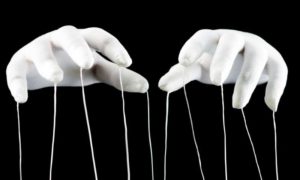We’re hearing an increase in chatter out there about media “conspiracies,” about how the media conspire against conservative politicians, how the media undermine their policies.
Wow! How cool is that?
The president of the United States has been trumpeting the media conspiracy mantra of late. That’s his view. He’s entitled to it.
I feel the need to respond to it using my own frame of reference.
I worked in print journalism full time for nearly 37 years. I worked for newspapers that occasionally got tagged by readers who thought the paper was conspiring to shade the news in favor of certain segments of the community while ignoring other segments.
My response then was this: We don’t have time at our newspaper to conspire against anyone; conspiracies require time to think and plan such activities. Getting a newspaper assembled and pushed out the back door is damn near a miracle every single day. Who has time for conspiracies?
I believe that rationale works at some level in response to the president’s assertion that the media are conspiring against him.
I have heard the comments from the likes of former New York Times editor Jill Abramson who says her former paper forms its political coverage with a tilt against Donald Trump, that there is an anti-Trump bias in the NYT newsroom.
I just try to put myself in the shoes of the front-line reporters and editors who are concerned chiefly with just getting the paper published every day. Do they sit around and ask: How are we going to shade our coverage in a way that puts the president in the most negative light imaginable? I have trouble making that leap.
So the conspiracy talks continues. Maybe it’s just that I am inherently anti-conspiracy by nature.
My own experience working in regular communities in Oregon and Texas tells me that conspiracies require too much work among journalists who struggle with all their might simply at being good at their craft.
